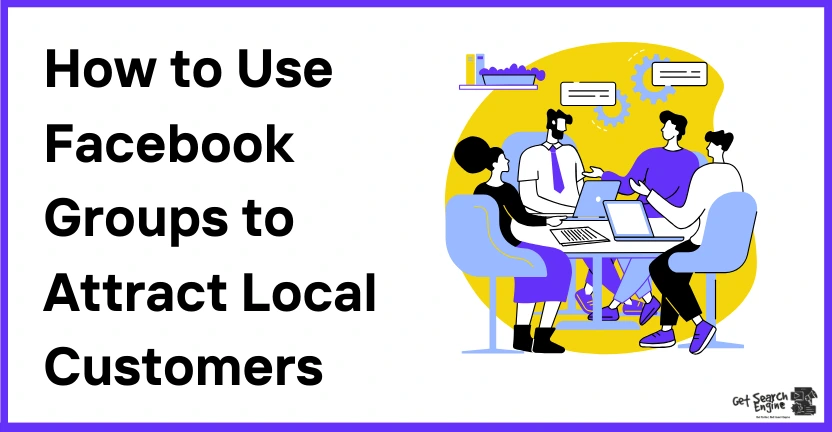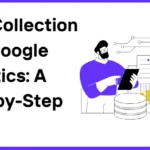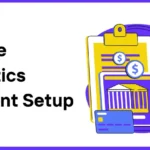In today’s digital world, Facebook Groups for local businesses have become powerful tools for attracting and engaging customers. Unlike traditional advertising, these groups foster direct communication, helping businesses build strong relationships with their local audience.
Local business promotion thrives in a community-driven environment where people can interact, ask questions, and share experiences. A well-managed Facebook Group increases brand visibility and boosts customer loyalty.
This article will explore:
✔ The benefits of using Facebook Groups for local businesses
✔ How to set up and grow a group organically
✔ Best practices for engagement and promotion
Let’s dive in!
Why Facebook Groups Matter for Local Businesses
Facebook Groups offer a unique way for local businesses to connect with their audience. Unlike Facebook Pages, which focus on broadcasting updates, groups encourage two-way conversations. This leads to better engagement, as members actively participate in discussions rather than consume content.
Key benefits of Facebook Groups for local business promotion:
✔ Stronger Community Engagement – Groups create a sense of belonging, making customers feel valued.
✔ Direct Conversations – Businesses can interact with customers quickly, answering queries and addressing concerns.
✔ Enhanced Trust and Loyalty – A well-managed group fosters relationships, turning customers into loyal advocates.
✔ Organic Reach – Facebook prioritises group content, increasing visibility without paid promotions.
Businesses can establish themselves as industry leaders by leveraging community-driven marketing while building a loyal customer base. A Facebook Group is a marketing tool and a space for meaningful customer interactions.
How to Set Up a Facebook Group for Your Local Business
Creating a Facebook Group for local businesses is a strategic way to connect with potential customers and foster engagement. Follow these steps to set up an effective group:
✔ Step 1: Create the Group – Go to Facebook, click on “Create Group,” and choose a name that includes relevant keywords for local SEO (e.g., “Seattle Coffee Lovers – Best Local Cafés”).
✔ Step 2: Select Privacy Settings – Choose between:
- Public Groups – Anyone can see posts, ideal for broader reach.
- Private Groups – Members-only access, creating exclusivity and stronger engagement.
✔ Step 3: Add a Clear Description – Explain the group’s purpose and how members can benefit.
✔ Step 4: Set Group Rules – Establish guidelines to maintain respectful discussions, prevent spam, and ensure valuable interactions.
✔ Step 5: Customize and Brand – Upload a cover photo, add tags, and pin a welcome post.
A well-structured Facebook Group helps businesses create a strong local presence, attract the right audience, and encourage meaningful conversations. The correct settings and rules ensure the group remains active, relevant, and beneficial for the business and its members.
Growing Your Facebook Group Organically
Building an engaged community in a Facebook Group for local business requires organic growth strategies. Instead of relying on ads, focus on attracting the right members through valuable content and strategic promotion.
✔ Invite Your Existing Network – Start by inviting loyal customers, social media followers, and local influencers who can actively participate in discussions. Their engagement will encourage others to join.
✔ Encourage Word-of-Mouth Growth – Ask current members to invite friends, family, or colleagues who may benefit from the group. Offer exclusive perks, such as special discounts or insider content, to incentivise referrals.
✔ Cross-Promote Your Group – Promote your group on various platforms:
- Website – Add a direct link to the group.
- Email Newsletters – Include a call-to-action inviting subscribers to join.
- Other Social Media Channels – Share updates and teasers from the group.
✔ Post Engaging Content Regularly – Keep members interested with interactive posts:
- Polls to gather opinions and boost participation.
- Q&A sessions to encourage discussions.
- Local news, updates, or exclusive business insights.
Implementing these strategies allows businesses to grow their Facebook Groups naturally, ensuring long-term engagement and a thriving community.
Engaging and Retaining Group Members
Creating a Facebook Group for local businesses is not enough; consistent engagement is key to keeping members active and interested. Businesses should focus on making the group a valuable space where members feel heard and involved.
✔ Post Interactive Content – Encourage discussions by sharing engaging posts such as:
- Open-ended questions related to your business niche.
- Polls to gather opinions and preferences.
- “This or That” posts to spark fun conversations.
✔ Leverage Facebook Live & Exclusive Offers – Live sessions allow real-time member interaction. Businesses can use them for:
- Product launches and demonstrations.
- Behind-the-scenes looks at daily operations.
- Q&A sessions to address customer concerns.
✔ Encourage User-Generated Content and testimonials. Ask members to share their experiences with your products or services. Featuring their posts builds trust and boosts engagement.
✔ Be Responsive and foster Community. Respond promptly to comments and messages. Recognising active members, featuring their contributions, and expressing appreciation help create a strong sense of belonging.
By maintaining an engaging environment, businesses can turn group members into loyal customers who actively participate and promote the group within their circles.
Promoting Your Business Without Being Salesy
A Facebook Group for local business should focus on building relationships rather than pushing sales. Overly promotional content can drive members away, so businesses must balance engagement with subtle marketing.
✔ Prioritize Community Over Selling – Members join groups for value, not advertisements. Engage in conversations, answer questions, and offer helpful insights before introducing your products or services.
✔ Use Storytelling & Soft Selling – Instead of direct promotions, share real-life experiences:
- Success stories of customers who benefited from your services.
- Behind-the-scenes content showcasing your business journey.
- Educational posts related to your industry with a subtle mention of your offerings.
✔ Provide Value First – Offer expert tips, how-to guides, and industry updates. Members who see your knowledge and credibility are more likely to trust your brand and convert into customers.
Businesses can naturally attract customers by focusing on engagement and value-driven content without making the group feel like a sales platform.
Conclusion
Facebook Groups provide an excellent platform for local businesses to connect with their audience, build trust, and foster long-term relationships. Unlike traditional marketing, these groups encourage direct interaction, making businesses more approachable and relatable.
To succeed, businesses must:
✔ Stay consistent – Regular engagement keeps members active.
✔ Focus on value – Providing helpful content builds credibility.
✔ Encourage conversations – A thriving community leads to loyal customers.
Businesses can organically attract and retain customers by maintaining a well-managed Facebook group. Now is the time for local business owners to create their Facebook Group and build a strong, engaged community.






Leave a Reply